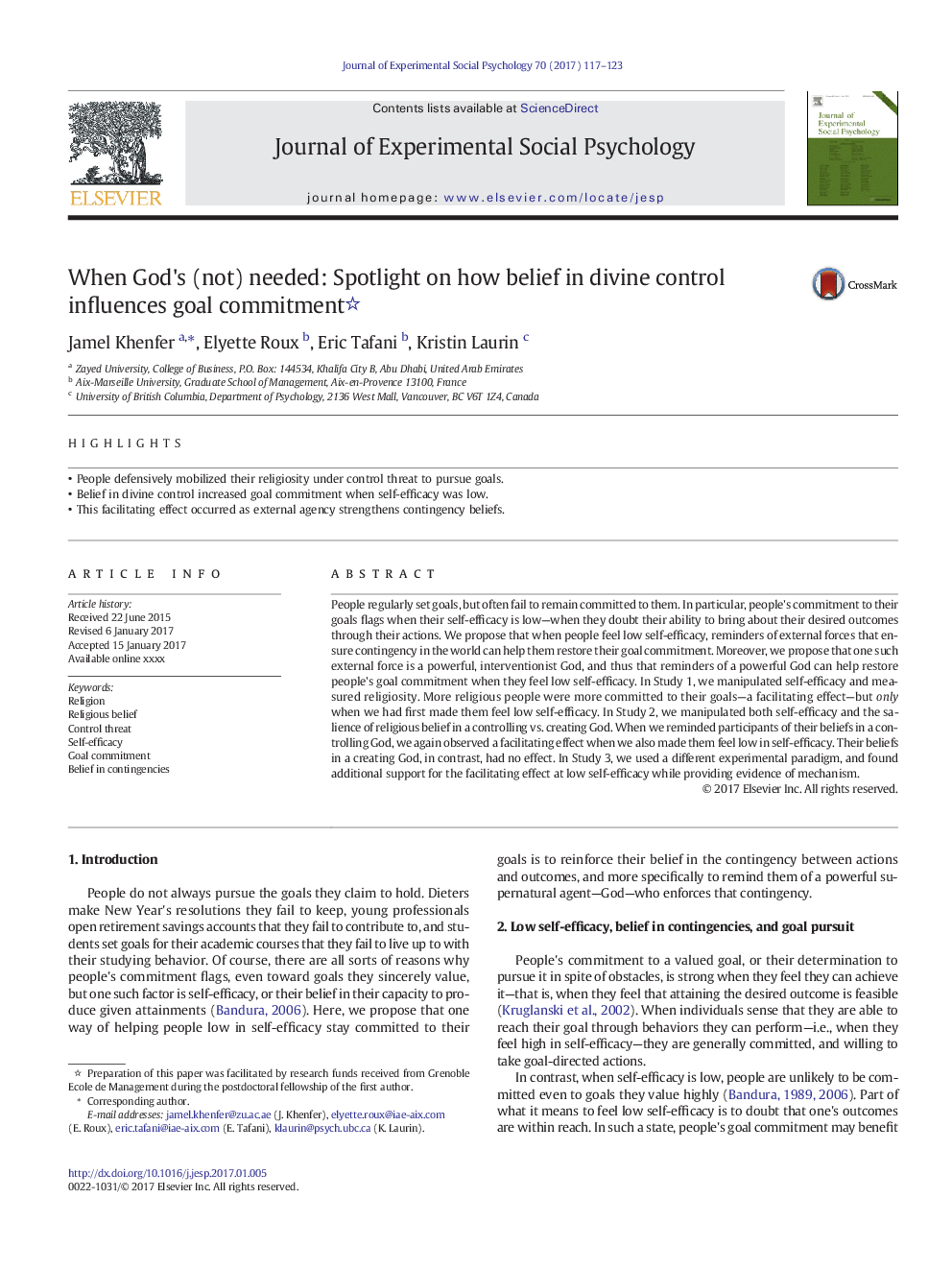ترجمه فارسی عنوان مقاله
هنگامی که خدا (نه) مورد نیاز بود: توجه ویژه ای بر اینکه چگونه اعتقاد به کنترل الهی بر تعهد هدف تأثیر می گذارد
عنوان انگلیسی
When God's (not) needed: Spotlight on how belief in divine control influences goal commitment
| کد مقاله | سال انتشار | تعداد صفحات مقاله انگلیسی |
|---|---|---|
| 122484 | 2017 | 7 صفحه PDF |
منبع

Publisher : Elsevier - Science Direct (الزویر - ساینس دایرکت)
Journal : Journal of Experimental Social Psychology, Volume 70, May 2017, Pages 117-123
ترجمه کلمات کلیدی
دین، اعتقاد مذهبی، تهدید کنترل، خود کارآمدی، تعهد هدف، اعتقاد به احتمالات،
کلمات کلیدی انگلیسی
Religion; Religious belief; Control threat; Self-efficacy; Goal commitment; Belief in contingencies;

